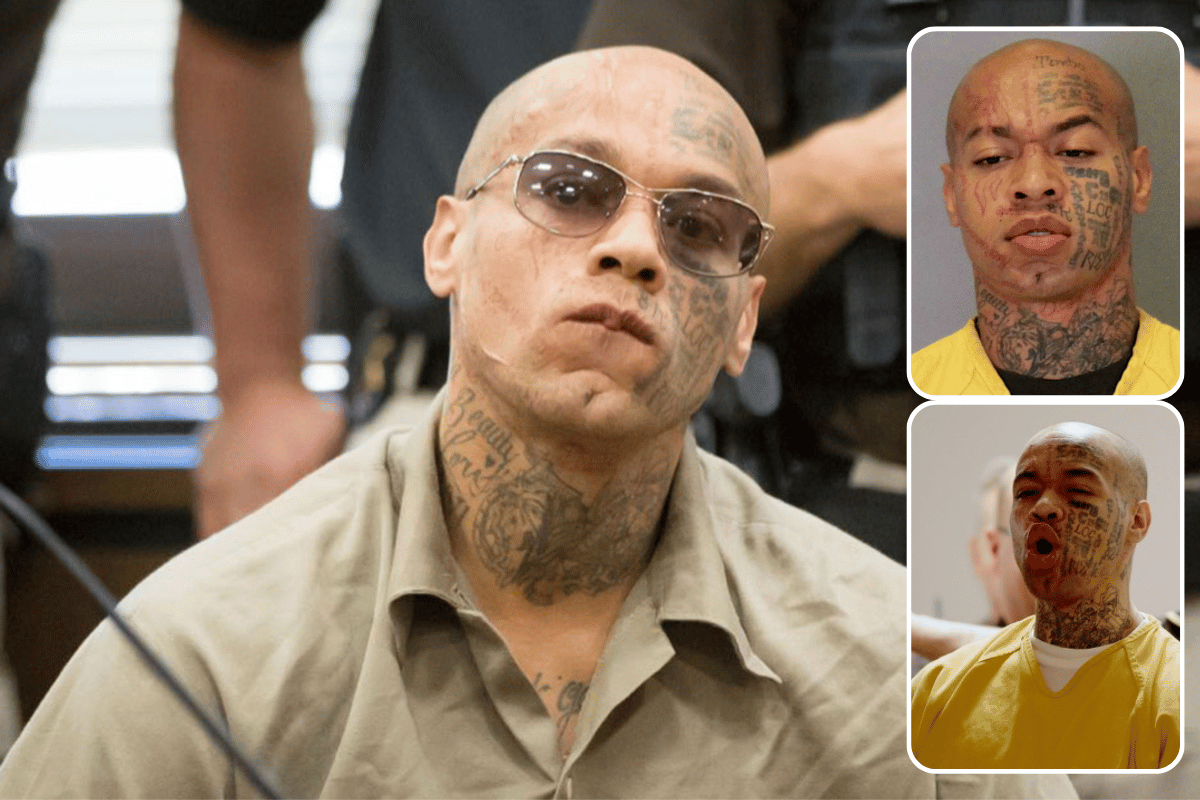Nikko Jenkins is a name that has become synonymous with one of the most brutal killing sprees in the history of Nebraska. In just ten days in August 2013, Nikko Jenkins shocked the nation by murdering four people in gruesome, senseless attacks. It sparked a nationwide debate about mental illness and the criminal justice system. In this article, we’ll dive into Jenkins’ life and crimes, looking at what led to his horrific actions and the aftermath of his trial and sentencing.
The Horrific Killing Spree of Nikko Jenkins
Nikko Jenkins is a name that will forever be associated with one of the most brutal and senseless killing sprees in the history of Nebraska. In just ten days in August of 2013, Jenkins murdered four people in a series of gruesome and shocking attacks. His crimes not only shocked the community but also sparked a nationwide debate about mental illness and the criminal justice system.
Early Life and Mental Health Issues
Nikko Jenkins was born on September 16, 1986, in Colorado Springs, CO. Jenkins experienced a deeply traumatic upbringing, with a father who was in and out of jail and a mother struggling with addiction. He further endured significant mental health challenges, including schizophrenia and bipolar disorder. These experiences shaped his life in profound ways and helped to define the man he is today.
Nikko Jenkins’ childhood was plagued with signs of potential mental illness and violent behavior. The youngest of six siblings, he brought a loaded .25 caliber handgun to school at the tender age of 7, according to People Pill. By age 8, his mother had taken him to the hospital due to self-harm and growing aggression toward others. Psychiatrist Dr. Jane Dahlke evaluated Jenkins and diagnosed him with oppositional defiant disorder and attention deficit hyperactivity disorder.
Dahlke testified that Jenkins heard voices telling him to steal and experienced other auditory hallucinations, including seeing “black spirits” and having nightmares of his father shooting his mother. Jenkins’ behavior continued to worsen as he got older. He stopped attending school regularly at age 11 and was kicked out of a group home for repeated violence at the same age. At just 13, he had already assaulted someone with a knife. By age 15, Jenkins was convicted of two armed carjackings and spent a decade behind bars.
Unfortunately, his release in 2013 marked the start of a killing spree, which resulted in the brutal murders of several innocent victims. Jenkins’ troubled past and possible mental illness may have played a significant role in his heinous actions. In 2003, Nikko Jenkins was incarcerated at the young age of 15 for two armed carjackings and remained in prison for a decade, as reported by the Associated Press. Jenkins’ mental health started showing signs when he was in his early teens. He got diagnosed with bipolar disorder at 13 and later schizophrenia. Despite it all, he still managed to graduate high school and even went to college for a bit.
The Killing Spree
Just eleven days after his release from prison in 2013, Nikko Jenkins, aided by his sister and cousin, lured two men by posing as prostitutes and brutally killed them with shotguns using deer slugs. The victims were Juan Uribe-Pena and Jorge Cajiga-Ruiz, who were both shot in the head and robbed of their wallets. Shockingly, only eight days later, Jenkins and his sister Erica Jenkins, murdered their acquaintance Curtis Bradford.
According to the prosecution, Erica shot Bradford in the head, and then Jenkins showed her how to use a shotgun with a deer slug. The twisted and gruesome nature of these crimes is truly disturbing. The prosecution put forth a grim case against Jenkins on August 21, 2013, when he carjacked Andrea Kruger, a bartender, as she was driving home from work.
Jenkins and three of his relatives pulled her out of her SUV with the intent to “rob or jack other people.” Unfortunately, two days later, Jenkins took Andrea Kruger’s life in an unspeakable act of violence. Court documents prove that this heinous crime was premeditated and malicious. Nikko Jenkins brutally attacked and murdered Kruger, firing four shots directly at her head, neck, and back. He then proceeded to steal her car as a cruel act of desecration. This heinous crime showcases Jenkins’ total disregard for human life and the law.
The Egyptian God Connection
During his trial, Jenkins claimed that he was following the instructions of an Egyptian god named Apophis. Nikko Jenkins claims he has been haunted by Apophis, the Egyptian serpent god of evil, chaos, darkness, and destruction since childhood. Nikko Jenkins’ former wife Chalonda Jenkins recalls him saying the god had demanded he obey in order to be safe. Indeed, Jenkins admitted in court to carrying out certain shootings in 2013, citing Apophis as his motivation.
According to Jenkins himself: “It wasn’t premeditated. The demonic force led me to them just like the other victims.” Even while in prison, Jenkins paid homage to Apophis by slashing his penis and tongue to make them look more serpent-like, requiring 27 stitches for his penis and 9 for his tongue according to The Guardian NG and the Omaha World-Herald. It is clear that Nikko Jenkins’ long-term relationship with Apophis has had a profound effect on his decisions and behavior. He claimed that Apophis had told him to commit the murders and that he was doing so to appease the god. Jenkins’ claims of following Apophis were dismissed by the court, and he was found guilty of four counts of first-degree murder.
Conviction and Sentencing
In 2014, Nikko Jenkins stood trial for a series of murders despite his history of mental issues. During the bench trial, Jenkins represented himself and exhibited abnormal behavior such as speaking in tongues and laughing while his crimes were being described. He got convicted in April, but the sentencing was put on hold for three years to look into his mental health and make sure he grasped the repercussions of his actions.
After careful consideration, it was decided that Jenkins was capable of comprehending the severity of the death penalty; thus, when he was finally sentenced for his four shootings, he remained silent and emotionless – a stark contrast from the excitable manner in which he had confessed to these same murders more than three years prior. Nikko Jenkins was found guilty and, three years later, got the death penalty plus 450 years in prison on weapons charges.
But he’s petitioned the Supreme Court to review his death sentence ’cause he never got the mental health treatment he desperately needed. It’s obvious that mental health care is a basic human right, so Jenkins’ sentence should be commuted. His case sets a precedent for future instances where individuals may not have received the necessary mental health support they needed and deserve. The Supreme Court must consider these circumstances carefully when deciding Jenkins’ fate. If the court does not consider this plea for justice, it will be failing to recognize the vital role mental health plays in criminal proceedings and perpetuating a cycle of violence and injustice.
Conclusion
The horrific killing spree of Nikko Jenkins will forever be remembered as one of the darkest moments in the history of Nebraska. His heinous acts of violence and depravity sent shockwaves throughout the nation, prompting a critical discourse regarding mental health and the need for reform in the criminal justice system. Though his plea of the divine command was ultimately refuted, his brutal crimes will remain indelibly etched in our collective memory as those of an unrepentant murderer.
















